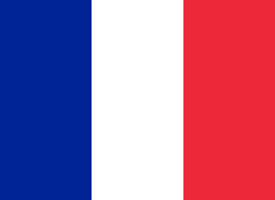Northern Bulgaria, Dracula’s Country:
We cycled 85 km. from Zimnicea to Giurgiu, in Romania, still along the Danube, in the direction of Ivanovo, in Bulgaria. We waited ages at the Bulgarian customs for busloads of passengers. The view from the 2-km. long bridge connecting Romania and Bulgaria was pretty if you looked only at the river and not at the ugly industrial factories and idle cranes on the Bulgarian bank.
We rode 10 km. to the center of Rousse, and seeing it was too late to bike the remaining 20 km. to Ivanovo that night, as we had originally planned, we decided to look for a hotel. We asked a passing biker for directions, and he decided to guide us around town personally in search of one. But the hotels in this town were unreasonably expensive, and hesitating about what to do, he invited us to stay the night at his house. We accepted gladly. We went back to his house to find his mother, Baba Katja, and his wife, Svetlana. His name was Peter.
We ate a Bulgarian specialty, a cucumber and yogurt soup, and watched a huge celebration of Bulgaria’s entry to NATO on TV. There was traditional and folk music and dancing, a lot like the kind we had seen at the Christmas Fair in Budapest. It was very lively, very well-choreographed, very good. A big production.
We got incredibly lucky the next day. We had planned on biking to Ivanovo while leaving our bags at Peter’s, but stopped in at the tourist office first to ask for the special permit that was needed to visit the site. The tourist agent was very helpful and set us up with the Director of Rousse’s History Museum. He not only offered to drive us there and back and give us a private tour (as the site was officially closed until the summer months), but he also found a French translator to accompany us.
For more about the Ivanovo UNESCO site (a group of rock churches built in the cliffs of the Carpathian Mountains), please visit the section entitled “UNESCO sites” for Bulgaria. We spent an unforgettable afternoon admiring the rock churches and the spectacular scenery of the cliffs of the wild mountainside.
Barsabovo: The last active monastery in Bulgaria – where Dracula grew up:
After our tour of the Holy Virgin’s Rock Church in Ivanovo, our guides took us to the nearby monastery in Barsabovo. It was smaller than Holy Virgin’s, but built into the cliffs in the same manner. It became a church in the 12th century, then functioned as a monastery from the 15th to 18th centuries, after which time no one lived there until 1930, when a monk came and renewed monastic life at the church. It is currently the last active monastery in Bulgaria, but only one monk lives here today – a young man.
It is for its history that the church at Barsabovo is perhaps the monst interesting. In fact, the monastery belonged to the grandfather of Vlad Dracula, the man who was to go down in history as “Dracula,” and it was here that he spent at least part of his childhood.
The legend of Dracula thus begins, at least in part, here. Dracula was a prince of Wallachia, the southern region of Romania along the Danube that we cycled through. He became a prince of Transylvania later on. Vlad Dracul was famous in these parts because he liberated Rousse, the regional city, from the Turks in the 15th century.
Dracula:
Vlad Dracula was born in c. 1427 of the Basarabi family in the region of Rousse, in what is now northern Bulgaria. This contrasts with Bram Stoker’s vampire, who defended Transylvania’s medieval borders. His name, “Dracula,” means “son of Dracul.” His father, Vlad Dracul, was also terrifying. Interestingly, in Romanian, “dracu” translates as “devil.”
As Vlad III, he became prince of Wallachia three times, in 1448, 1456-62, and 1475. “Wallachia’s princes had to fight tooth and nail to maintain their freedom. Sandwiched between warring superpowers , they spent their lives playing one neighbour off against another. It was a game of viciousness and duplicity.”
During Dracula’s reign, his regime ran on the simple rule that he would torture and kill anyone who offended him. He had people ethnically cleansed in the hundreds. Apparently, his favorite game was to invite those he disliked to a feast and then to murder them. His nickname comes from the Romanian word for “stake


